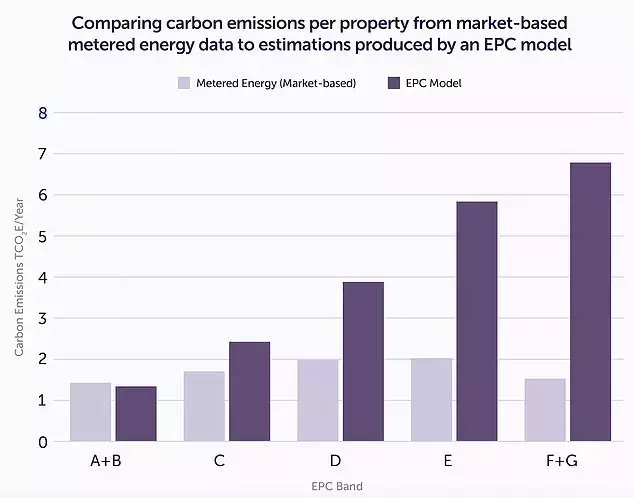




A recent comprehensive analysis has raised serious questions regarding the efficacy and accuracy of Energy Performance Certificates (EPCs). Findings from a joint study indicate that the current methodology for assessing household carbon emissions, as reflected in EPC ratings, may be fundamentally flawed. This could have significant implications for homeowners, landlords, and national efforts toward decarbonization, as the observed energy consumption in homes often does not align with their official efficiency classifications.
Furthermore, concerns have been voiced by industry professionals about the prevalence of unreliable assessments within the sector. There are allegations of dishonest practices by some assessors, which further undermine the credibility of EPCs. This issue highlights the urgent need for a re-evaluation of the current system to ensure that these certificates provide genuinely reliable information, impacting financial decisions related to property and contributing effectively to environmental objectives.
The Unreliability of Current EPC Ratings
A recent investigation has exposed critical flaws in the current system of Energy Performance Certificates (EPCs), challenging their utility as a reliable measure of a property's energy efficiency. This study compared the theoretical carbon emission estimates provided by EPC ratings with actual energy consumption data gathered from smart meters in over a thousand homes. The striking revelation was that homes with high EPC ratings (A-C), deemed the most energy-efficient, showed negligible differences in actual carbon emissions compared to those with lower ratings (D-G). This divergence suggests that the current EPC framework may not accurately reflect a property's real-world environmental impact or its occupants' energy usage patterns, raising concerns about the effectiveness of policies that rely on these assessments.
This disparity brings into question the validity of relying solely on EPCs for green lending, banking carbon reporting, and governmental policies aimed at reducing residential emissions. The study, spearheaded by Atom Bank and supported by experts from University College London’s Energy Institute, points to a systemic issue where estimated energy performance does not translate into actual performance. Such inaccuracies can mislead prospective homeowners and renters, influencing their decisions based on potentially false assumptions about energy savings. Moreover, it casts doubt on whether current regulations and incentives tied to EPCs are genuinely contributing to net-zero targets or merely creating an illusion of progress. Industry experts are now advocating for a shift towards a data-driven approach, emphasizing the importance of real-world energy consumption data, such as utility bills or smart meter readings, to provide a more accurate and meaningful assessment of a property's energy footprint.
The Call for EPC System Reform
The clear inconsistencies highlighted by the recent study underscore an urgent need for comprehensive reform of the Energy Performance Certificate (EPC) system. Industry voices, including prominent figures like Gareth Jones from the Federation of Master Builders in Wales, emphasize that the existing EPC methodology is outdated and struggles to keep pace with advancements in construction and thermal technologies. Beyond merely being ineffective, there is a growing apprehension about the integrity of the assessment process itself, with warnings about the proliferation of unscrupulous assessors who may deliberately provide inaccurate ratings. This not only defrauds homeowners and landlords, potentially leading to unnecessary expenses for property upgrades, but also undermines the broader goal of improving national energy efficiency and combating climate change.
In response to these critical findings and concerns, key stakeholders, including Atom Bank and various industry experts, are advocating for significant changes to the EPC framework. They propose a fundamental shift from theoretical energy performance estimations to a system based on tangible, real-world energy consumption data, ideally derived from utility bills or smart meters. Furthermore, calls are being made for more stringent quality control and rigorous assessments of building standards to ensure that properties meet their declared energy performance. Such reforms are crucial not only for achieving environmental targets but also for fostering greater transparency and trust within the housing market. A reformed EPC system would empower consumers with accurate information, facilitate truly green lending practices, and ensure that financial incentives are directed towards genuine energy efficiency improvements, ultimately benefiting both individuals and the environment.
